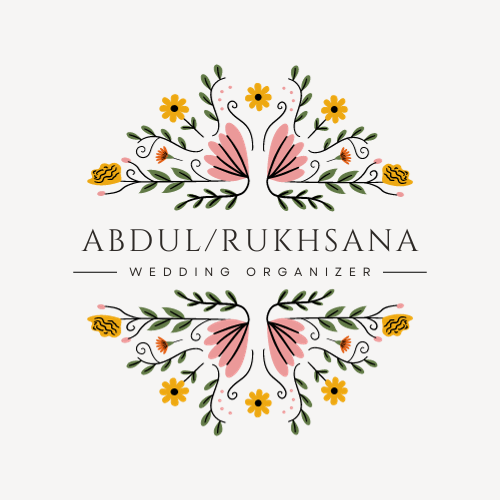
Nikah (Marriage) Ceremony
The Nikah, or Marriage Ceremony, is a fundamental component of a Muslim marriage. It is a sacred contract that formalizes the union between a bride and groom and outlines the rights and responsibilities of both spouses. The Nikah ceremony typically follows a structured format and is officiated by a religious leader or Imam.
Here is a detailed description of the key elements of a Nikah ceremony:
Invocation (Du’a): The ceremony often begins with an invocation, or du’a, in which the officiating Imam or religious leader offers prayers and supplications to seek Allah’s blessings, guidance, and mercy upon the couple and their union.
Recitation of Quranic Verses: Relevant verses from the Quran may be recited to emphasize the importance of marriage in Islam. One common verse recited is Surah An-Nur (Quran 24:32), which highlights the sanctity of marriage and the responsibility of spouses toward each other.
Khutbah (Sermon): The Imam or religious leader delivers a sermon or khutbah that addresses the significance of marriage in Islam. This sermon often includes advice for the bride and groom on their roles and responsibilities as spouses, the importance of mutual respect and support, and the role of faith in a successful marriage.
Ijab and Qabul (Proposal and Acceptance): The core of the Nikah ceremony involves the Ijab (proposal) and Qabul (acceptance). The bride’s guardian or wali, often her father or another male relative, offers her in marriage to the groom, expressing his willingness to give her in marriage. The groom, in the presence of witnesses, accepts this proposal by stating his acceptance (Qabul) of the bride in marriage.
Mahr (Dower): The Mahr is a mandatory gift or dowry given by the groom to the bride as a symbol of his commitment and responsibility toward her. The amount and nature of the Mahr are specified and agreed upon in advance between the bride and groom or their families.
Witnesses: The presence of two adult Muslim witnesses is required to validate the marriage contract. These witnesses attest to the Ijab and Qabul, confirming that the proposal and acceptance have taken place.
Marriage Contract (Aqd-Nikah): The marriage contract, known as Aqd-Nikah, is a written document that outlines the terms and conditions of the marriage, including the Mahr and any other specific conditions or agreements. Both the bride and groom, as well as their witnesses, sign the contract as a formal record of the marriage.
Blessings and Congratulatory Wishes: After the signing of the marriage contract, guests and well-wishers often offer blessings and congratulatory wishes to the newlyweds. These expressions of joy and support are an integral part of the Nikah celebration.
Closing Du’a: The ceremony concludes with a closing du’a in which the Imam or religious leader prays for the happiness, success, and longevity of the marriage, seeking Allah’s guidance and protection for the couple.
The Nikah ceremony is a solemn and joyous occasion that marks the beginning of a new chapter in the lives of the bride and groom. It is a celebration of love, commitment, and faith in accordance with Islamic principles and traditions.
